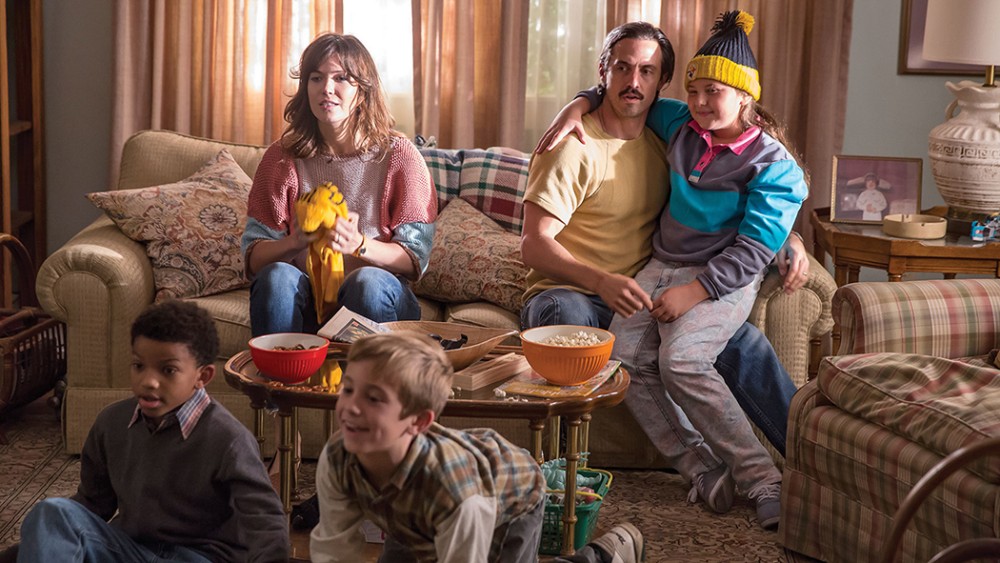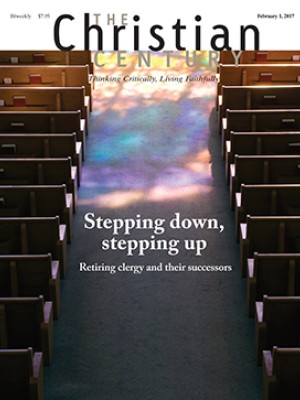A multiracial family’s questions and fears
This Is Us depicts the dangers of life alone and the complications of life together.

In a scene from This Is Us, NBC’s powerful new family dramedy, nine-year-old Randall, who’s black, is struggling with his identity while his white, adoptive parents are arguing about whether to try to find his biological parents.
“He’s our son,” Jack Pearson (Milo Ventimiglia) says to Rebecca (Mandy Moore). “He is our all-star, knockout boy who deserves everything we could possibly give him, even if that means sucking up our own feelings about him having birth parents out there somewhere that might fill this void that he’s feeling. . . . Why are you against even trying?”
“I cannot lose my son,” she replies. “I can’t.”
Rebecca has a secret—one she keeps for nearly three decades even from her husband: she knows Randall’s biological father, William.
Sometimes we keep secrets to protect those who are closest to us. Sometimes we think we can protect ourselves. But secrets do not always keep us safe. Sometimes they carry the weight of our insecurity, which gives them the power to hurt those we’re trying to protect.
Read our latest issue or browse back issues.
This Is Us deals with the complexity of one American family from birth to death. It ping-pongs between the past—Jack and Rebecca raising Randall and their biological twins Kevin and Kate—and the present. Kevin (Justin Hartley) grows up to become an actor, Kate (a luminous Chrissy Metz) is a celebrity assistant, and Randall (the spectacular Sterling K. Brown) is a commodities trader and husband and father. Along the way, all of the Pearsons wrestle with issues of self-worth, sexuality, addiction, class, and career.
Jack and Rebecca raise their black son among whites, naively navigating the basics of hair care and dealing with a lack of role models who look like their son. Rebecca hides her deep insecurities about being Randall’s mom, and Randall struggles with having a white family. These story lines have resonated with some multiracial families. Last year, a white friend of mine adopted a daughter who’s black, and he told me he appreciated how the adopted brother in the show “struggles with being adopted, but not in an angst-like way. He doesn’t withdraw from his adoptive family, and he doesn’t choose his biological father over his adoptive mother or the memory of his adoptive father. He wrestles with it all with a desire to hold on to what he knows and discover what he does not.”
Part of the show’s beauty is its economy. Small gestures and seemingly tiny moments reveal common fears and the characters’ desire for connection. Rebecca checks the multiple locks on the family’s cabin door. At a hospital on Christmas Eve, a young Kevin sees a crèche, a menorah, and a little statue of the Virgin Mary, and asks a nurse: “If I want to pray, which one works the best?” Kate waits desperately for a text message to appear on her iPhone screen but sees only ellipses appearing and then disappearing.
This Is Us mostly resists caricature, but given the limitations of a one-hour drama with intersecting story lines, it’s inevitable that some characters seem one-dimensional. Kate struggles with obesity, and the focus on her weight feels relentless. She dates, and the major issue is her weight. She gets a job as a personal assistant, and the major issue is her weight. She takes an airplane flight, and again the major issue is her weight. When I complained about this to a person who has struggled with weight issues of her own and adores This Is Us, she said: “Weight is never just weight. The weight covered [Kate’s] insecurity of feeling unwanted and not needed—with lovers as well as with family.”
That’s the theme of This Is Us—the fear of being unwanted, unvalued, and unloved. Out of those fears come questions: Whom can I trust? What does it mean to belong? “I live in fear that if I let up for a moment I will know I am unwanted,” one character says. “And then what?”
When we tell stories to ourselves and others, we often airbrush out the complexity. This show depicts the dangers of life alone and the complications of life together, yet it remains optimistic. At a Narcotics Anonymous meeting, William testifies to a restored relationship and says: “I did not expect God’s grace.” Yet there it is, because this is what it means to be human. The way through fear is not solitude, and the path of love leads us from isolation. This is what it means to be us.
A version of this article, which was edited for clarification on January 24, appears in the February 1 print edition under the title “Family fears.”





